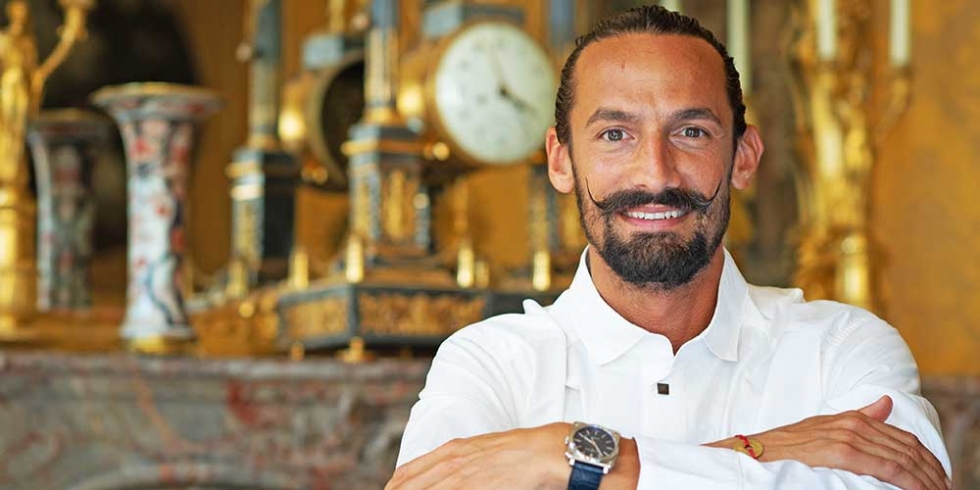Did you always dream of becoming a pastry chef? How did you get to where you are today?
Actually, I dreamt more of becoming a baker. But my brother was a pastry chef, so I developed a love of pastry alongside him. I decided to take over from him and continue in the same field as him. As soon as I was qualified, I started an apprenticeship. I obtained my CAP vocational qualification in Capbreton (located in Landes) and worked in a small provincial pastry shop, where it was just me and my boss. It was a very formative experience! At 18, I went to stay in Paris for a short amount of time. I was amazed by the thousands of possibilities the city offered. I called my parents to tell them I wasn’t coming back.
Before arriving at the Hôtel de Matignon, you worked at different big name bakery houses—Fauchon, Maison du Chocolat…
Yes. I started working at Fauchon then at the Maison du Chocolat, and at the US Embassy where I began to rub shoulders with the luxury houses. Through the accumulation of these experiences, I was able to discover the different aspects of pastry: from the shop and the caterer, through to the presentation on the plate. The Hôtel de Matignon ended up offering me a job. I refused the first time but then accepted a few years later. I’ve been there for 14 years now—I’ve seen six different Prime Ministers! I enjoy it, there are many beautiful things to do, it’s creative, there are things to learn.
Being a pastry chef is a profession driven by passion
Looking at your career path, you learnt your profession mostly on the job. What do you think about the training available today?
I think the CAP vocational qualification has changed and that the level of training has dropped. Before, we would learn about chocolate, ice cream, confectionery, and so on, but today CAP vocational qualifications are very specialised. Overall, the Pastry Chef CAP qualification has become a little too simplified. The topics are not up-to-date—they are not sufficiently modern in terms of the exams and practice. The training in general needs to be developed a bit more.
What does the opening of Institut Culinaire de France mean to you?
It is a good thing that new pastry schools are opening their doors. They often deal with areas of learning that were not previously offered on traditional courses and which are often essential. Entrepreneurship or management, in particular, come to mind, for example. Indeed, there is an interesting approach at Institut Culinaire de France: that of training students in these concepts, which are now fundamental in our field. We must teach them to convey a beautiful image of our profession on social media, to talk about their work, etc.
We must teach students to convey a beautiful image of our profession on social media
What advice would you give to a young person who wants to become a pastry chef?
Choosing to be a pastry chef means striving for excellence in everything we do; learning to adapt to the produce we receive, the demands of our customers and the environment in which we work; and respecting our colleagues. You have to have both human and professional values. These are things that should be taught to young people from the beginning of their training. Being a pastry chef is a profession driven by passion. In the past, those who chose the apprenticeship stream were considered to be "bad" at school. Today, they are passionate people, changing careers... it is completely different!
